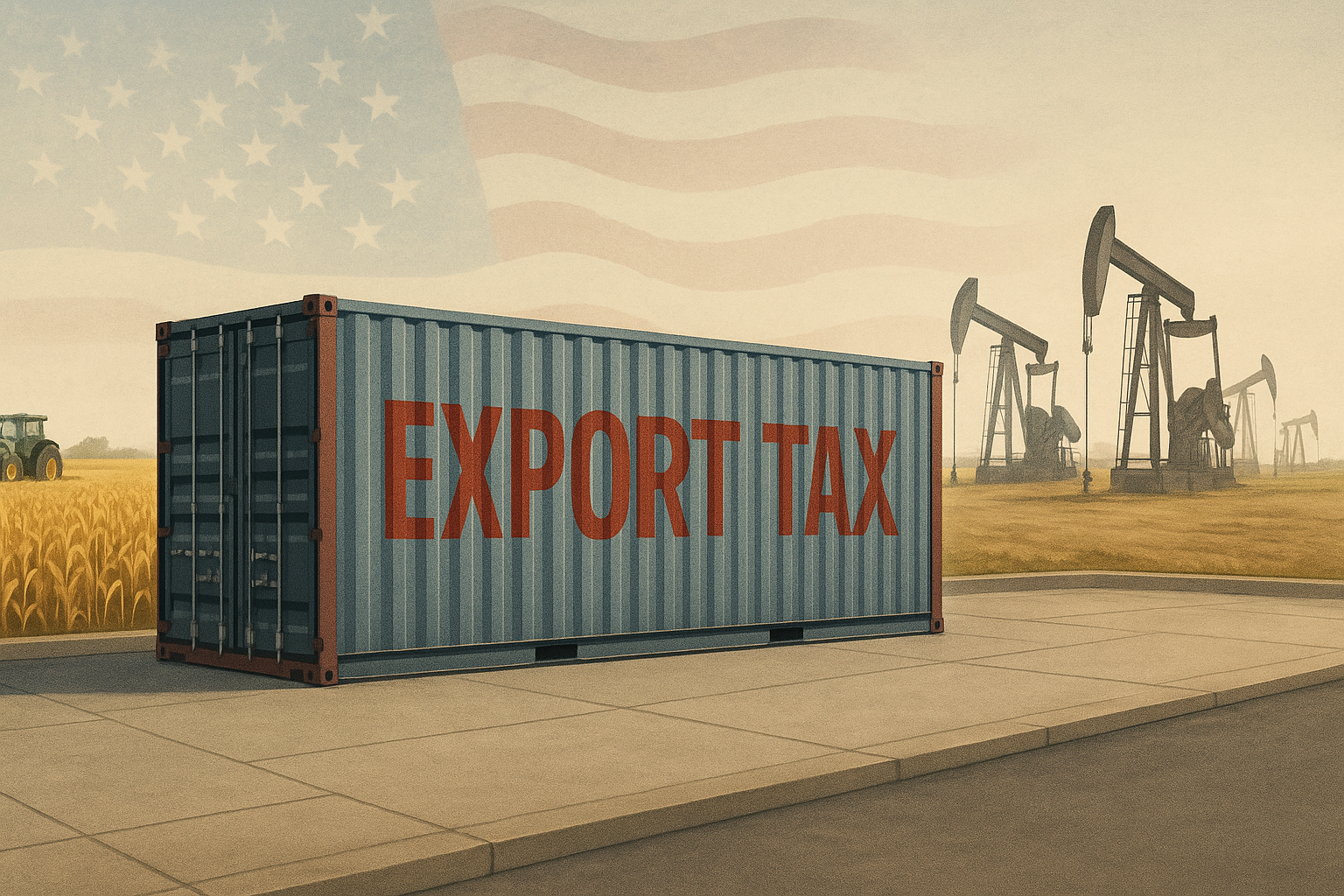Scott Bessent is stirring the economic pot again. This time, the hedge fund veteran and potential Trump Treasury pick is suggesting something that would've been unthinkable in Republican circles just years ago: expanding export taxes beyond just energy.
I've been tracking Bessent's evolving positions since he emerged as a Trump economic advisor, and this latest trial balloon seems particularly noteworthy. It's not every day you see a Blackstone alum proposing measures that effectively restrict free trade.
The suggestion came during a Bloomberg interview where Bessent—building on Trump's earlier proposals for energy export taxes—casually mentioned this approach could work for agricultural products and other sectors too.
Wait, what?
Let's back up. The traditional Republican economic playbook has long featured tax cuts and free trade as non-negotiable orthodoxy. Remember when Paul Ryan and Mitch McConnell wouldn't even entertain discussions about tariffs? Those days are apparently long gone.
Bessent's thinking seems to reflect a broader shift among the Trump-aligned conservative intelligentsia. There's this growing view (which, frankly, has been percolating since 2016) that pure free trade hasn't delivered for American workers in the heartland. The argument goes that targeted export restrictions could keep more resources domestic, potentially lowering prices at home while creating leverage in international negotiations.
But here's the rub—export taxes are complicated beasts. They're generally regressive and distortionary. They transfer wealth from producers (like farmers) to consumers, while simultaneously mucking up global economic efficiency.
For agriculture especially, this gets thorny. I spoke with three agricultural economists last week about similar proposals, and they all raised red flags. American farmers already navigate brutal international competition, weather disasters, and margins thinner than single-ply toilet paper. Adding export taxes would effectively cut their selling prices, which would almost certainly require offsetting subsidies—creating this weird money merry-go-round benefiting mostly bureaucrats and accountants.
"It's solving one problem by creating three more," as one economist put it to me.
So what's really happening here? My best read (after covering economic policy shifts for nearly a decade) is that Bessent is sketching out negotiating positions rather than actual policy proposals. By floating the possibility of export restrictions, the U.S. gains bargaining chips in trade talks without necessarily implementing these measures.
There's also obvious political calculation. Energy export taxes might appeal to voters worried about gas prices. Agricultural export taxes could be marketed as "keeping American food in America." The economic efficiency losses are invisible to most voters, while the perceived benefits make for great campaign talking points.
Look, five years ago, if you'd told me Scott Bessent would be seriously discussing export taxes as policy, I'd have thought you were confusing him with someone else. Yet here we are.
The market implications haven't fully materialized. Energy stocks wobbled when Trump first proposed energy export taxes, but agricultural commodities haven't shown significant reaction to Bessent's broader suggestion. Traders, it seems, remain skeptical these policies would actually be implemented at scale.
What's fascinating is how this creates strange bedfellows across the political spectrum. Progressive economists have long criticized unfettered free trade for its distributional consequences. Now we have Wall Street Republicans contemplating tools that would've seemed more at home in a Bernie Sanders policy platform.
Is this genuine conviction or pre-election positioning? That's the million-dollar question.
The one certainty: economic orthodoxies are being questioned everywhere, and previously unthinkable policy tools are suddenly on the table. From where I sit, watching previously immovable economic boundaries get redrawn makes covering financial policy more unpredictable—and frankly more interesting—than it's been in decades.
I just hope someone's warning American farmers what might be coming their way.
